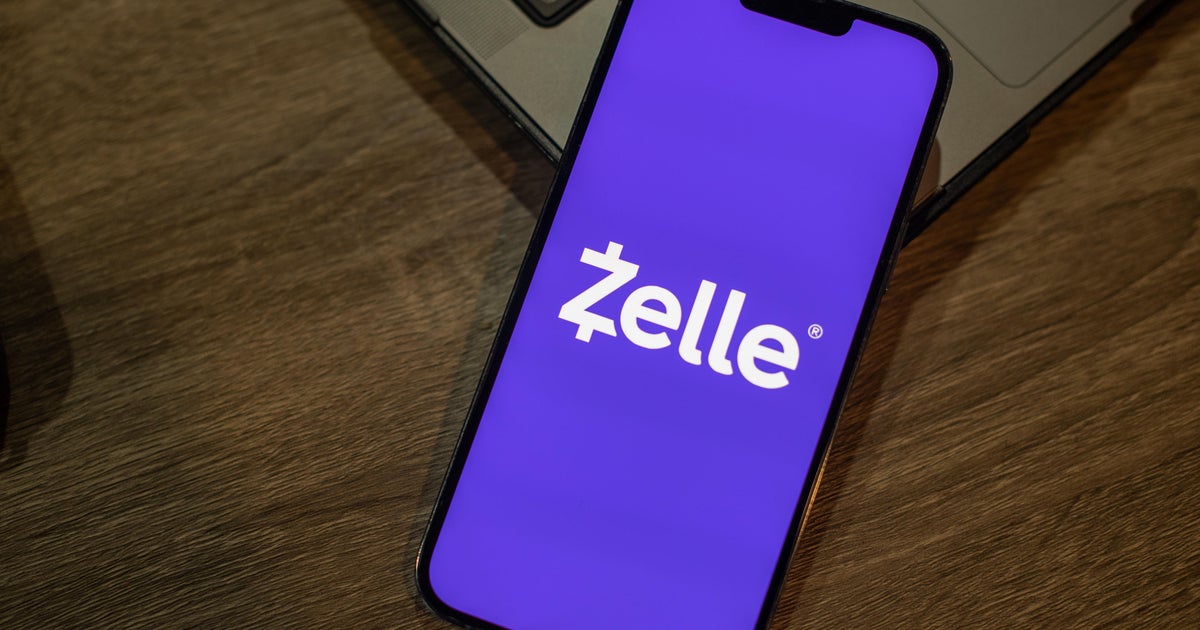CBS News
How Trump could undo portions of Biden’s climate legacy

Donald Trump’s victory in the 2024 election set in motion a race against time by President Biden to safeguard his environmental legacy in his remaining days as president.
But his administration’s stepped-up pace of climate-related announcements will likely mean little once Trump is inaugurated and the Republican-led Congress is seated in January. Mr. Biden’s most recent climate initiatives are all but certain to be short-lived, mostly thanks to an obscure law that tends to come into play every four years.
That law, the Congressional Review Act, allows Congress to kill any regulation issued by a federal agency in the last 60 legislative days with a simple majority vote in the House and Senate and the signature of the president.
Since Election Day, the Biden administration has announced final rules that include one to dramatically curb methane emissions and another that bans all future coal mining leases on federal lands. Both rules are expected to be rolled back soon after Trump takes office.
Methane is the second most abundant greenhouse gas, after carbon dioxide, but it traps heat in the atmosphere at 28 times the rate of carbon dioxide, the Environmental Protection Agency has observed. On the upside, methane doesn’t remain in the atmosphere for as long as CO2, so cutting methane emissions can have a much quicker, more dramatic impact on lowering greenhouse gases. Human sources of methane emissions include oil and gas systems, landfills, wastewater treatment facilities and a host of other industrial processes.
On Nov. 12, the Biden administration announced a final rule that will charge oil and natural gas companies a hefty fee if they exceed methane emission limits. It’s an effort to encourage these companies to improve their processes to reduce methane leaks.
The EPA estimates that implementing the methane emissions rule would be akin to taking nearly 8 million gas-powered cars off the road for a year.
The Biden administration also recently blocked all new coal mining leases on public lands, which would affect new leases in Wyoming and Montana, the source of 40% of the nation’s coal. The Associated Press pointed to government analyses that said ending federal leasing would reduce emissions by the equivalent of 293 million tons of carbon dioxide a year, roughly on par with eliminating emissions from 63 million gas-powered cars.
Existing leases would still allow mining in the region to continue for decades. But coal has been losing ground in recent years, as the U.S. has steadily come to rely more on cheap natural gas and renewable energy sources — and less on coal.
Republican politicians in Wyoming and Montana denounced the ban, and GOP Sen. John Barrasso of Wyoming said in a statement that he’s ready to work with Trump to reverse the ban and other regulations.
In Trump’s view, fears about climate change are overblown or premature. He’s called it a “hoax” in the past. He opposes clean energy and EV subsidies and has said what America needs to do is “drill, baby drill” — that is, increase traditional oil and gas production in order to bring down energy prices for Americans. This shouldn’t come as a surprise — in his first term, upon taking office, he overturned 100 environmental rules enacted by President Obama.
During his presidential campaign, Trump promised business-friendly policies that he claimed would halve energy costs in a year by approving new drilling and slashing red tape.
Some experts doubt that’ll happen.
“There is no universe in which decisions by the federal government can cause that extent of a reaction from markets,” Jonathan Elkind, senior research scholar at the Center on Global Energy Policy at Columbia University told CBS News. “The oil markets, they are too big, they are too global, and the president of the United States does not have the capability to exert influence that is as strong as that.”
There are still, however, some Biden climate policies that are likely to be out of Trump’s reach.
Billions in clean energy investment was set aside in the 2022 climate law, the most significant climate change legislation ever signed. But the key to protecting that funding is making sure the money is spent, or allocated, before Inauguration Day, Jan. 20.
Once the grant money is spent, Trump and Republicans are highly unlikely to be able to claw it back.
“Legally, any obligated fund is safe,” said Christina DeConcini, director of government affairs at World Resources Institute. “If you listen to incoming administration officials, they are saying that they’re going to go after that. I don’t think they’re going to have a legal leg to stand on if it’s been obligated.”
The EPA says it’s learned over the years that the surest way to protect climate policy is to tie a regulation directly to legislation and funding.
In total, about $643.1 billion, or over 93% of funding available, has been obligated, according to a White House official. Billions remain to be spent under the climate law in the next fiscal year, and some Republicans may want to keep the climate spending in their districts and states.
Trying to take the grant funding back would mean “potentially taking away benefits to communities, both in terms of public health protections, but also economic benefits,” EPA senior adviser for implementation Zealan Hoover told CBS News.
And these grants are also far from the most expensive line-items in the climate law. The Energy Department announced almost $18 million for projects that bolster recycling programs, launch residential energy efficiency rebate programs and expand bike lanes and pedestrian walkways, among other projects. The Agriculture Department put $256 million toward the Rural Energy Program for America to expand use of wind, solar, geothermal and small hydropower energy.
These kinds of projects and the grants are likely to be safe through Trump’s second term.
contributed to this report.
CBS News
How can Congress avoid a government shutdown?

Watch CBS News
Be the first to know
Get browser notifications for breaking news, live events, and exclusive reporting.
CBS News
Mayorkas warns of serious consequences if government shutdown happens

Watch CBS News
Be the first to know
Get browser notifications for breaking news, live events, and exclusive reporting.
CBS News
Feds sue Zelle, alleging that nation’s biggest banks failed to stop fraud

Three Major banks and Zelle rushed to bring a peer-to-peer payment network to market without first ensuring users would be protected against “widespread” fraud, alleges a lawsuit filed on Friday by the Consumer Financial Protection Bureau.
Bank of America, JPMorgan Chase and Wells Fargo ignored customer complaints related to Zelle, users losing hundreds of millions of dollars in scams, the regulatory agency alleges. Zelle is run by Early Warning Services, which is owned by the three banks named in the CFPB’s suit, along with four other financial institutions.
According to the CFPB, bank customers have lost more than $870 million over the seven years Zells has been in operation. Early Warning and the three banks named in the complaint hastily created the payments network to head off rival payment apps including Venmo and CashApp without adequately protecting end users, the suit alleges.
“The nation’s largest banks felt threatened by competing apps, so they rushed to put out Zelle,” Rohit Chopra, the CFPB’s director, said in a statement. “By their failing to put in place proper safeguards, Zelle became a gold mine for fraudsters, while often leaving victims to fends for themselves.”
Zelle blasted the CFPB’s accusations as “legally and factually flawed,” with a spokesperson also suggesting the timing of the suit as “driven by political factors unrelated” to the company.
JPMorgan also accused the agency of pursuing a “political agenda,” stating that the agency was “overreaching its authority by making banks accountable for criminals, even including romance scammers.”
JPMorgan Chase said it prevents nearly $20 billion in fraud attempts each year, and that 99.95% of its transactions are completed without dispute.
A spokesperson for Wells Fargo declined to comment. Bank of America did not immediately respond to a request for comment.
Offered by more than 2,200 banks and credit unions, Zelle has more than 143 million users in the U.S., according to the suit. Customers transferred a total of $481 billion in conducting 1.7 billion transactions during the first half of 2024, the CFPB noted.
Hundreds of thousands of customers filed fraud complaints and were denied assistance by Zelle and the three banks, according to the suit, which noted that some people were advised to contact those behind the fraud to get their money back.
Zelle “has been slow to implement anti-fraud measures, including closing accounts accused of fraud,” Jaret Seiberg, an analyst with TD Cowen Washington Research Group, said in a report, pointing to the CFPB’s allegations. “It also permitted the registration of emails that were impersonating legitimate entities, including Zelle itself.”
Since Zelle launched in 2017, according to the CFPB, JPMorgan Chase received 420,00 customer complaints involving more than $360 million; Bank of America heard from 210,000 customers with more than $290 million in fraud losses; and Wells Fargo tallied $220 million in fraud losses by 280,000 people.
In 2023 Early Warning began refunding money to an undisclosed number of fraud victims amid pressure from lawmakers. In late 2022, Sen. Elizabeth Warren issued a report that found increasing incidents of fraud and scams to be occurring on the popular payment app, with large banks typically reluctant to compensate victims, the Massachusetts Democrat said.


